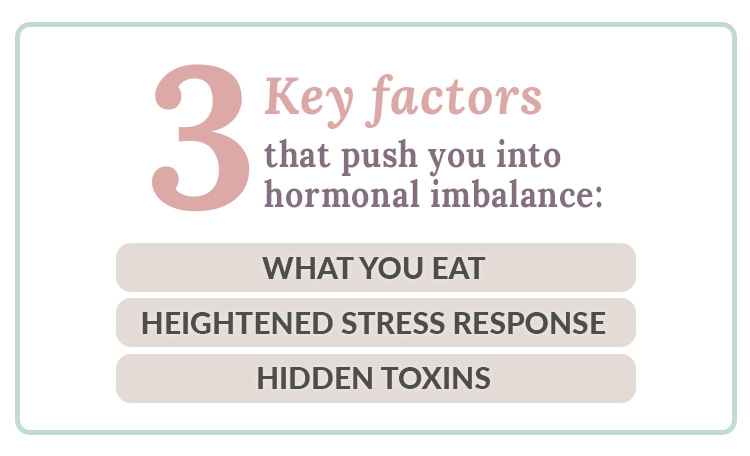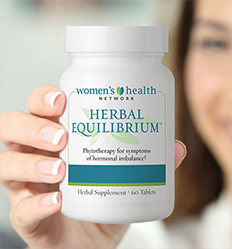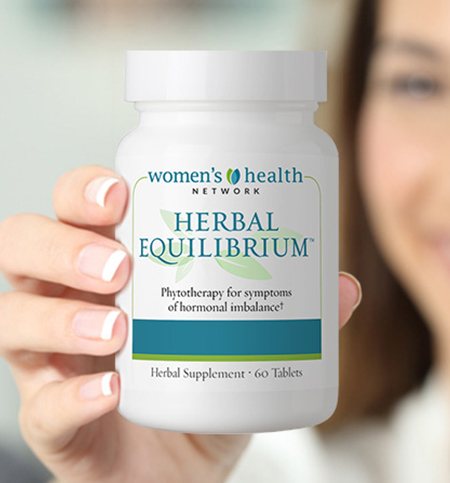Reviewed by Dr. Mary James, ND
Do you have symptoms of hormonal imbalance?
- Irregular or absent periods
- Weight gain
- Irritability/moodiness
- Skin issues
- Hair loss/unusual hair growth
- Infertility
- Fatigue/loss of energy
Hormonal imbalance occurs when normal levels and production of hormones in the endocrine system, or their ratio to other hormones, is disrupted. When it comes to hormonal imbalance, we tend to focus most on sex hormones related to pregnancy, periods and menopause.

But you have many types of hormones and they control many other functions including metabolism and weight, thyroid function, sleep cycles and your body’s response to stress. Even though all your hormones together form the foundation of your health, you may not realize how many symptoms and health issues are related to hormonal imbalance:
- Polycystic ovarian syndrome (PCOS), a common cause of infertility and other issues in women of reproductive age
- Estrogen dominance, a ratio of high estrogen-to-progesterone that leads to symptoms
- Severe perimenopausal symptoms that can begin years before menopause
- Hypothyroidism and other thyroid problems — an estimated 15 million Americans have unrecognized thyroid issues
- Adrenal stress and fatigue related to the levels and production of the stress hormone cortisol
- Diabetes, which is directly correlated to the hormone insulin
In short, if your hormones aren’t able to stay balanced, you’re likely to suffer from any number of symptoms as well as other possibly serious health issues. By understanding the causes of hormonal imbalance and learning which are within your control, you can both prevent and relieve symptoms, even when they are frequent and severe.
What causes hormonal imbalance?
Your hormones — including the sex hormones estrogen, progesterone and testosterone — are continually fluctuating. When you’re healthy and your body gets enough support, you can maintain balance between these key hormones.
Women’s lifestyles, and especially the way we take care of ourselves, has been shifting dramatically over recent generations. Many of these changes are leading to an increase in short-term hormonal events that are difficult for the body to manage.
As you struggle to keep up with the demands of your life, it’s important to focus on the three key factors that have some of the strongest negative influence on your hormonal balance: what you eat, how your body responds to the heightened stress you face daily, and the growing number of hidden toxins and endocrine disruptors that your body is trying to handle.
Hormonal imbalance symptoms — how they happen

1. What you eat. In general, we eat more pre-packaged food than ever before. That means we’re getting fewer nutrients and more sugar and additives. The problem is, increased sugar, preservatives, and other chemicals directly disrupt hormonal balance, including the major hormone, insulin. Once insulin is dysregulated, we’re more likely to gain weight and suffer from other inflammatory-related diseases. Poor nutrition also increases the severity and frequency of hot flashes and other menopause symptoms, PMS symptoms, adrenal hormone imbalance and thyroid-related symptoms.
2. Your body’s response to heightened stress. For many women, workloads have gotten heavier, cash flow has gotten lighter, and overall stress has intensified. We also deal with more electronics-based stressors including mobile devices and WIFI exposure. These factors affect hormonal balance mostly by way of the hormone cortisol, which is released by your adrenal glands to help you manage stressful situations. Just looking at a computer screen or television can trigger stress signals in your body, and influence cortisol. Stress and cortisol imbalances set off a chain reaction that disrupts your overall hormonal imbalance. And many women are not able to prioritize stress reduction and prevention.
3. Hidden toxins and endocrine disruptors. Your endocrine system is easily upset by the presence of toxins and other substances known as endocrine disruptors. These are often found in makeup, skin creams, plastics, Teflon-type coatings, cleaning products, clothing dyes and more. A 2012 study by the European Environment Agency found that household products, cosmetics, pharmaceuticals and food that contain endocrine-disrupting chemicals may account for the steep increase of diabetes, obesity, cancer and infertility. But recent studies show that even small changes in food choices and household practices can make a significant difference in creating a healthier environment and that’s good news for your hormones.
The domino effect of hormonal imbalance
Unfortunately, one hormonal imbalance can easily lead to a additional imbalances or other health issues because the branches of your endocrine system are intricately connected. For example, there’s a clear hormonal connection between obesity and insulin resistance, which often leads to type 2 diabetes and/or PCOS.
Another very common hormonal imbalance is high estrogen-to-progesterone, known as estrogen dominance. Estrogen dominance can occur when you have a high level of estrogen, often due to the diet and lifestyle factors described above. But it can also develop if your estrogen levels are normal, but your progesterone levels drop.
Adrenal imbalance can be connected to a thyroid hormone imbalance, such as hypothyroidism, or low thyroid. Many hormones are heavily influenced by the central command center in the brain, the hypothalamus. The hypothalamus continually sends and receives information meant to balance hormone production body-wide. Free (unbound) circulating hormones can influence the hypothalamus and other hormone systems in the body. If your body makes more cortisol due to ongoing stress, that cortisol then decreases production of thyroid stimulating hormone (TSH) and the thyroid hormone, T4 — often resulting in hypothyroidism. This hormonal chain reaction can have deep effects on your health and how you feel.
Hormonal balance: an important factor for lifelong health
If you think you may be experiencing a sex hormone imbalance, take our quick hormonal health quiz to help interpret what your symptoms are telling you. If your hormones are imbalanced, the first step is to ramp up the support you give your body. Effective natural solutions for sex hormone imbalance include plant-based supplementation and nutrition and lifestyle changes. Together, these steps can resolve the root cause of your symptoms.
Our approach to hormonal imbalance is comprehensive and works with your body to gently restore balance. We’ve developed Hormonal Health Programs that include our exclusive Herbal Equilibrium phytotherapeutic complex with black cohosh, ashwagandha and chasteberry to ease symptoms of hormonal imbalance. We’ve worked with tens of thousands of women to help them find the symptom relief they need to get back to their lives and have a little more fun every day. For more information, give us a call. We’re here to listen and help.












